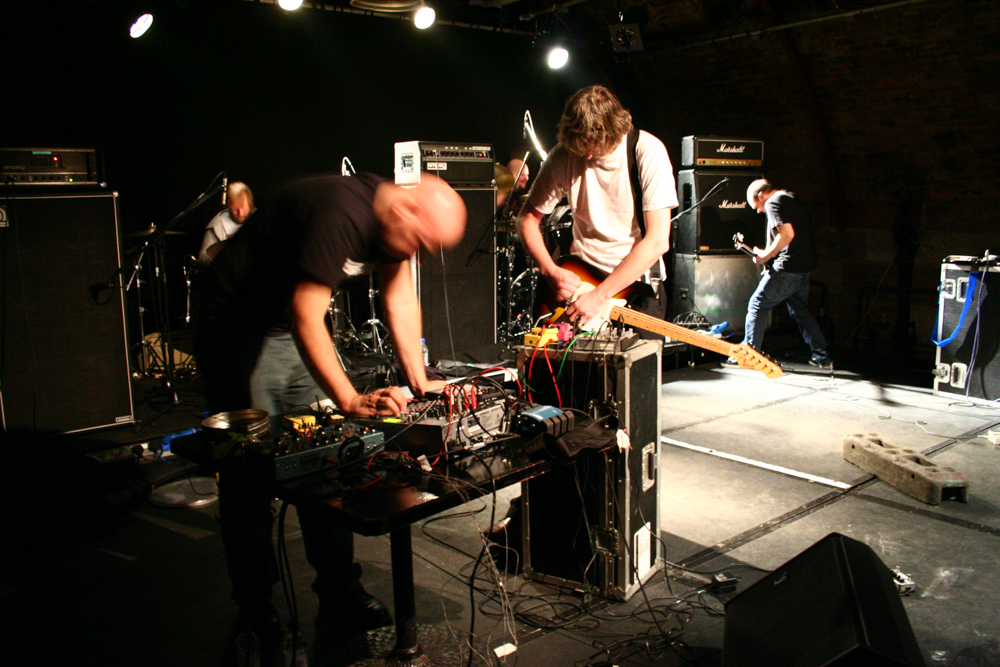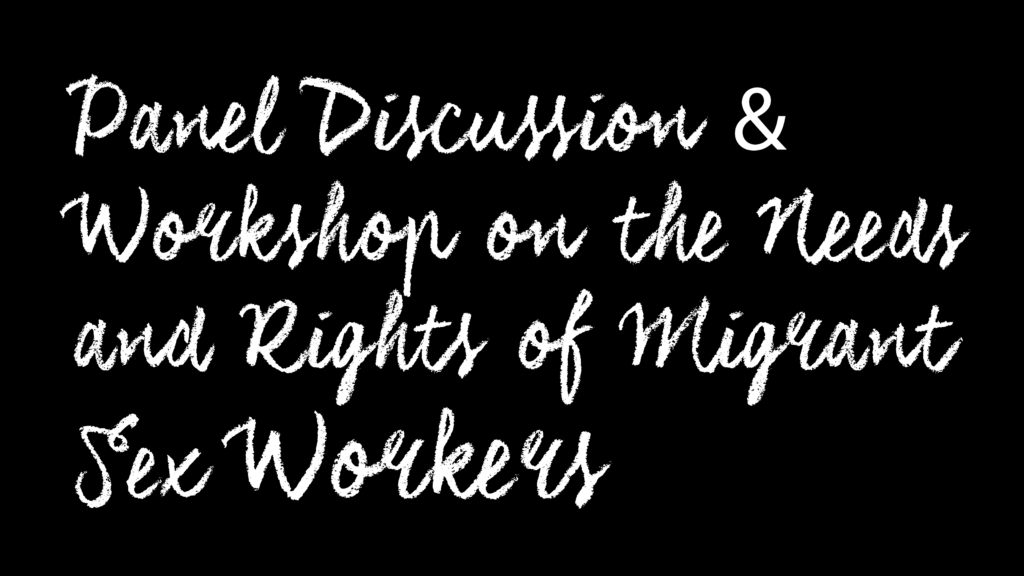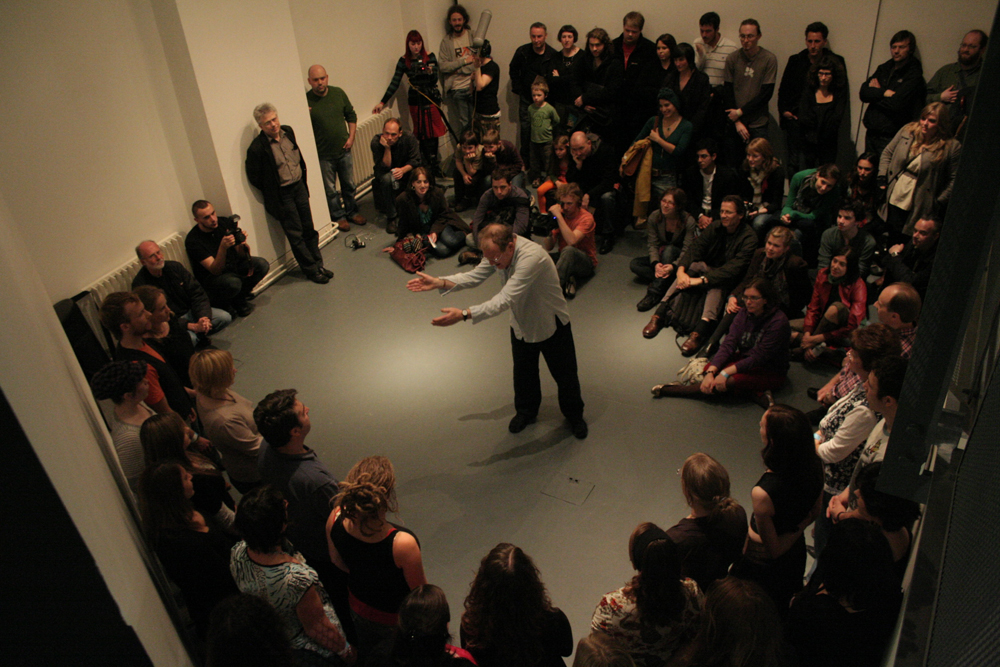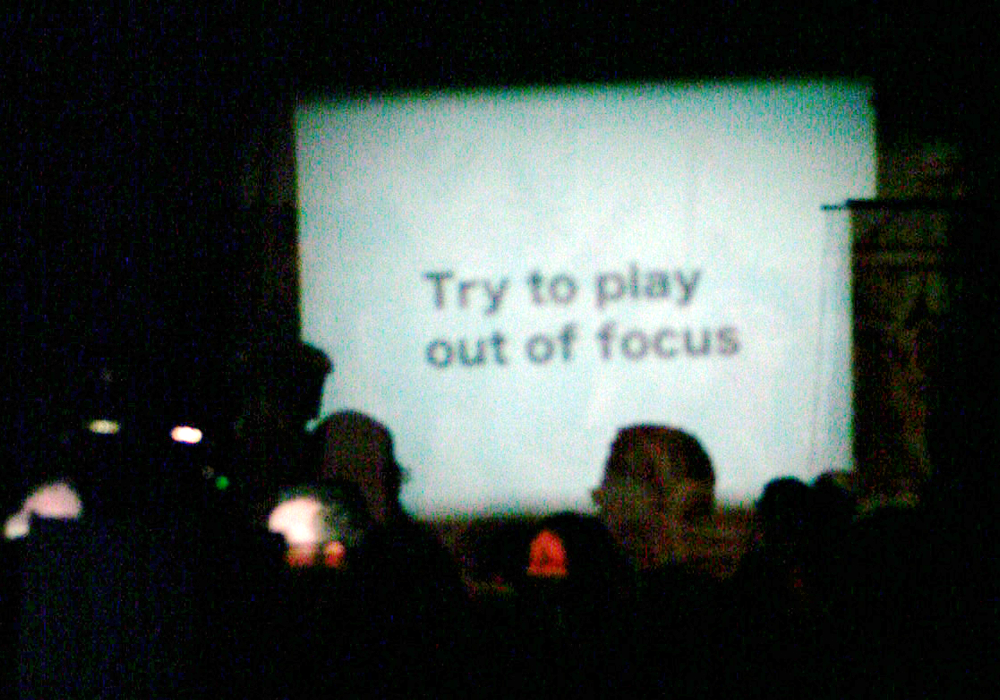
Lethe
Kiyoharu Kuwayama
A performance for dry ice and four specially constructed steel tables, each one heated by a single candle until searingly hot.
Arika have been creating events since 2001. The Archive is space to share the documentation of our work, over 600 events from the past 20 years. Browse the archive by event, artists and collections, explore using theme pairs, or use the index for a comprehensive overview.

A performance for dry ice and four specially constructed steel tables, each one heated by a single candle until searingly hot.

No Wave, damaged garage jams and crazed instant vocal shrieks.

A black hole of dense heaviosity, full of slow motion riffage, tectonic pummel and massive planet destroying rock.

Sound as it is endured by space and the body: 15 participants lie face down and pound the floor with a microphone one thousand times, each person choosing their own rhythm and intensity.

What kind of listening and acknowledging do we offer each other? What is it to listen to an ‘elsewhere’, and do we ever do anything else when we listen to music?

Ubuntu Women Shelter, National Ugly Mugs and the Sex Workers Union warmly invite you to a generative conversation (and Q&A) about the needs and rights of migrant sex workers in Scotland.

Nikos played every note that it’s possible to play on the cello, all played back as a one hour drone, while the cello was turned to powder and bottled.

A Feral Choir of people who’ve never improvised with their voices before, conducted by improviser yodeller, composer Phil Minton.

Solo performance on bass clarinet, jaw harp & voice by Arrington De Dionyso.

Investigating the border between the audible and the visible means looking at the margins, the edges of creativity where artists test out new boundaries and define them anew.

Out of a dark haze, shafts of lights are picked out from the surface of film. Out of the black silence, noise, audible scratches bloom into a bright drone of broken and cracked objects.

A performance for projectionist, musicians and audience, which plays with references to Oscar Levant and Gershwin: apparently a series of small doses of chaos.